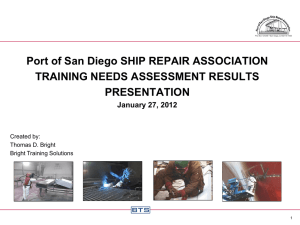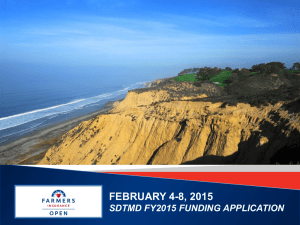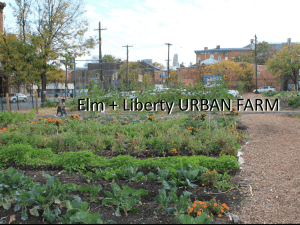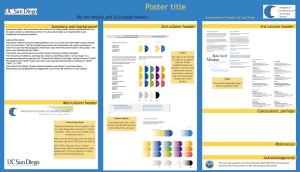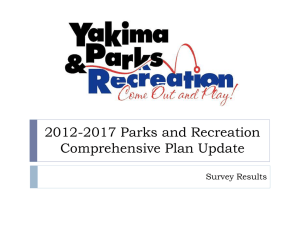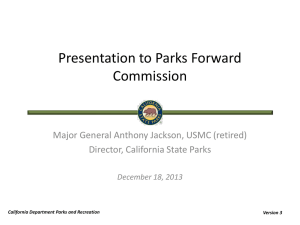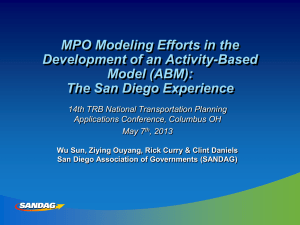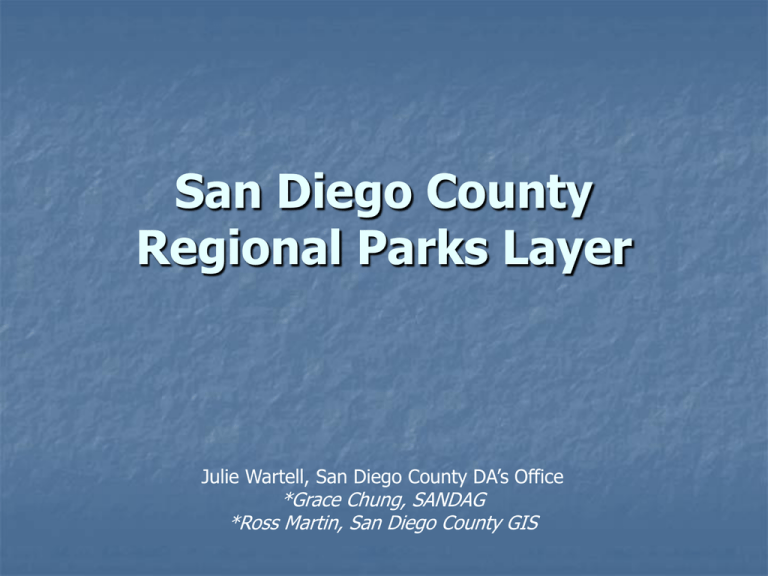
San Diego County
Regional Parks Layer
Julie Wartell, San Diego County DA’s Office
*Grace Chung, SANDAG
*Ross Martin, San Diego County GIS
Purpose
The San Diego Region Active Parks dataset
represents an ongoing effort to map all active
park areas¹ for monitoring registered sex
offenders who are required to live farther than
2000 feet from parks "where children gather" as
required by Jessica’s Law².
It primarily consists of public access parks, but
may contain privately owned park land if the
parcel is categorized as “Active Park" in the
SANDAG Landcore layer.
2
(1). San Diego County Code of Regulatory Ordinances SEC 810.102.(a)
(a) "Active Recreational Uses" means recreation facilities occurring on level or gently sloping land (maximum
10%) restricted for park and recreation purposes in a planned development which are designed to provide individual or
including, but not limited to,
open lawn, sports fields, court games, swimming pools, children's play areas, picnic
areas, recreation buildings, dance slabs, and recreational community gardening. Active
Recreational Uses do not include natural open space, nature study areas, open space for buffer areas, steep slopes,
group activities of an active nature common to local parks in San Diego County,
golf courses, riding and hiking trails, scenic overlooks, water courses, drainage areas, water bodies (lakes, ponds,
reservoirs), marinas and boating areas, parking areas, and archaeology areas.
(2). "Jessica's Law"
SEC. 21. Section 3003.5 of the Penal Code is amended to read:
3003.5 (b) Notwithstanding any other provision of law, it is unlawful for any person for whom registration is
required pursuant to Section 290 to reside within 2000 feet of any public or private school, or park where
children regularly gather.
3
How it was created
Active park areas from County of San Diego Parks and
City of San Diego Parks were combined with SANDAG
Landcore data (active parks and active beaches).
For park land with no associated name, Geonames and
Thomas Brothers datasets were used as a
supplementary source of information.
Then what?
Needed input from the other 16 cities in the County.
4
San Diego Region Active Parks
Review Website
•Correct park names or
ownership information
•Modify, add, or delete
geometry
•Provide any additional
information
http://gis2.sandag.org/RegionalParks
5
San Diego Region Active
Parks Review Website
Technology Used
ArcGIS Server
ArcGIS API for JavaScript
Data stored in MS SQL Server 2008
T-SQL Stored procedures used for writing
spatial geometries
ASP.NET – Handling sessions and user
accounts
SanGIS parcels and centerlines used for
basemap
6
Maintenance of San Diego
Region Active Parks
Workflow for Keeping Layer Accurate and Up-To-Date
1.
2.
3.
4.
County publishes Active Parks layer
SANDAG downloads the Active Parks layer
SANDAG posts latest Active Parks layer onto “Active Parks Review”
website
Local agencies review and comment regarding:
1.
2.
3.
4.
5.
6.
7.
Park
Park
Park
Park
location
boundary
name
ownership
County receives and reviews comments submitted by local
agencies
County implements or rejects comments
County of San Diego builds a new Active Parks layer and
produces a report of changes as well as comments that were
rejected
7
How to get the data
Go to http://www.sandag.org/
Click on “Regional Data Warehouse”
Accept the “Terms”
Click on “Park”
Click on download button for “Parks_Active_Use”
8
Contact Information
Data Information:
Ross Martin
County of San Diego GIS
(858) 694-2826
Ross.Martin@sdcounty.ca.gov
Website Information:
Grace Chung
San Diego Association of
Governments (SANDAG)
ph: 619-699-6950
Grace.Chung@sandag.org
9



